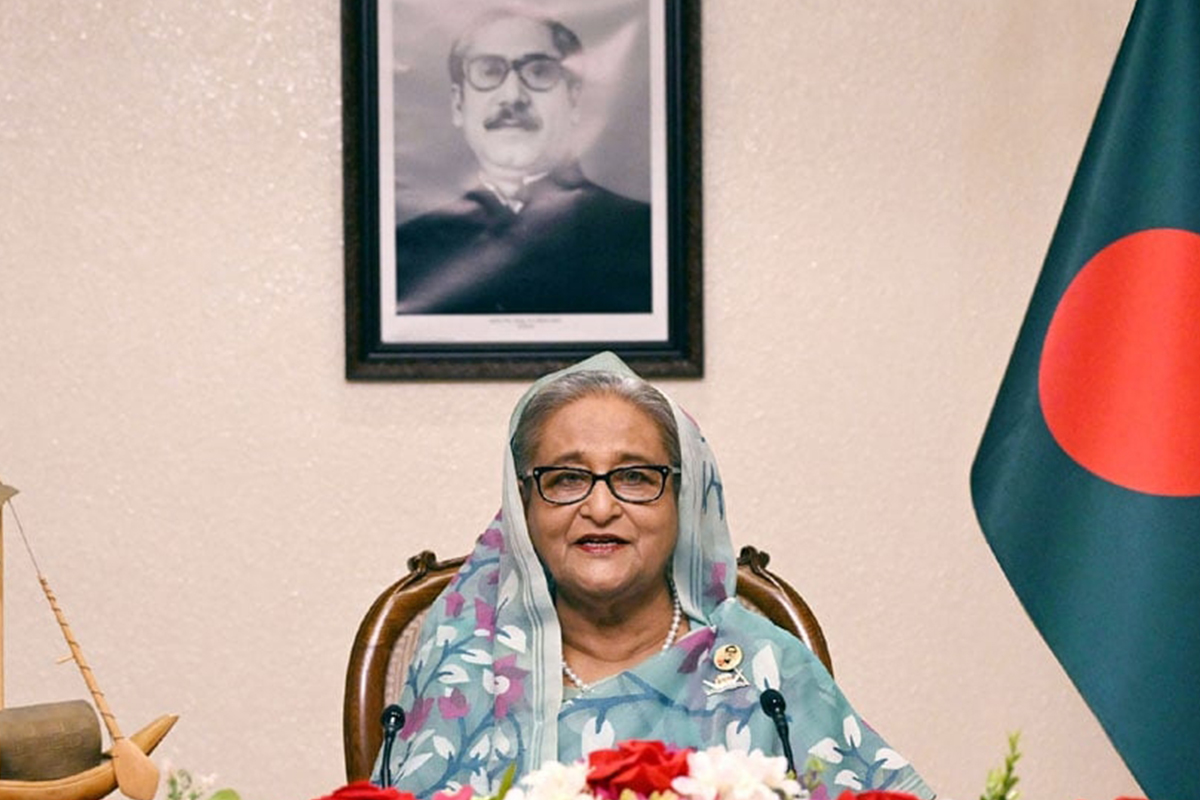Cong defeated ‘Bangladesh’ in semis, will rout ‘Pakistan’ in finals: Reddy
Reddy was addressing a meeting of the Congress social media team and took digs at both the BJP and the BRS.
Bangladesh finds itself at a critical juncture as Prime Minister Sheikh Hasina secures yet another term in a Parliamentary election marred by controversy and opposition boycotts.

Photo: IANS
Bangladesh finds itself at a critical juncture as Prime Minister Sheikh Hasina secures yet another term in a Parliamentary election marred by controversy and opposition boycotts. The recent events raise profound questions about the state of democracy in the country and the trajectory it is set to follow under Hasina’s leadership. The overwhelming victory of her Awami League, securing 216 out of 299 seats, has not come without a cloud of scepticism. The election was a battleground marred by violence, a boycott by the main opposition party, and accusations of a one-sided political landscape. The opposition, led by the Bangladesh Nationalist Party (BNP), vehemently rejects the results, citing concerns over the credibility of the electoral process. What is particularly troubling is the backdrop against which this election unfolded. The campaign was characterised by arson attacks, arrests, and escalating tensions, contributing to an atmosphere far from conducive to a fair and open democratic process.
The accusations of vote-rigging, a recurring theme in the past two elections under Hasina, only deepen the apprehensions surrounding the legitimacy of the electoral outcomes. The polarised political landscape, dominated by the bitter rivalry between Hasina’s Awami League and the BNP, has entrenched itself over the years, creating a situation where a credible challenge to the incumbent seems almost non-existent. The absence of major challengers raises concerns about the health of Bangladesh’s democracy, with critics arguing that the election outcome is preordained, making a mockery of the democratic principles it should uphold. The global economic slowdown adds another layer of complexity to the situation. Bangladesh, once lauded for its economic transformation under Hasina’s leadership, now grapples with cracks in its economy, triggering labour unrest and dissatisfaction among the populace. As citizens feel the economic pinch, the political climate becomes increasingly charged, reflecting a nation grappling with the consequences of its leader’s prolonged rule. Critics argue that Hasina’s rise to power has come at the expense of democratic values. Allegations of suppressing dissent, shrinking press freedoms, and restricting civil society raise concerns about the trajectory of Bangladesh’s democracy. The BNP claims that about 20,000 of its members were jailed on politically motivated charges, a claim the government vehemently denies.
The arrests and crackdown against opposition figures create an environment where political participation becomes a risky endeavour. While Hasina dismisses concerns over the legitimacy of the election, the reality on the ground paints a different picture. The victory secures Hasina’s place as one of the country’s most consequential leaders, but it does little to assuage the fears of those who worry that Bangladesh is on a dangerous path toward becoming a one-party state. The election has exposed fault lines in Bangladesh’s democratic foundation. As the international community watches, it is crucial to reflect on the broader implications for the future of democracy in Bangladesh.
Advertisement
Advertisement